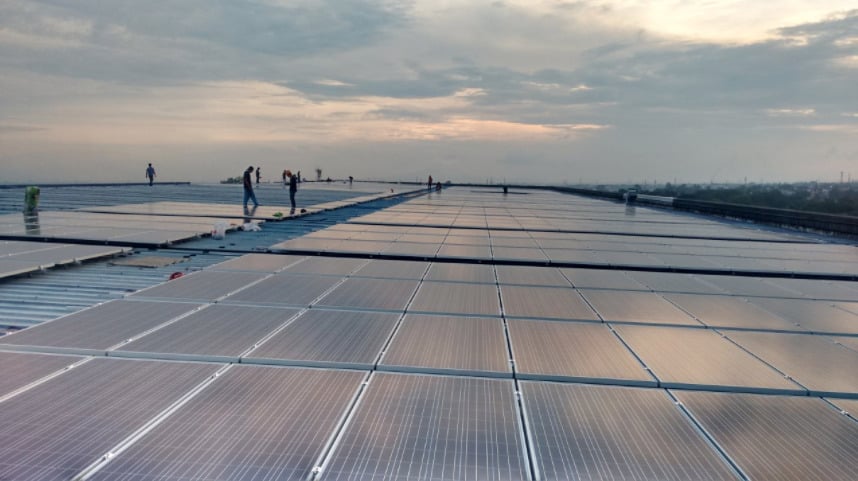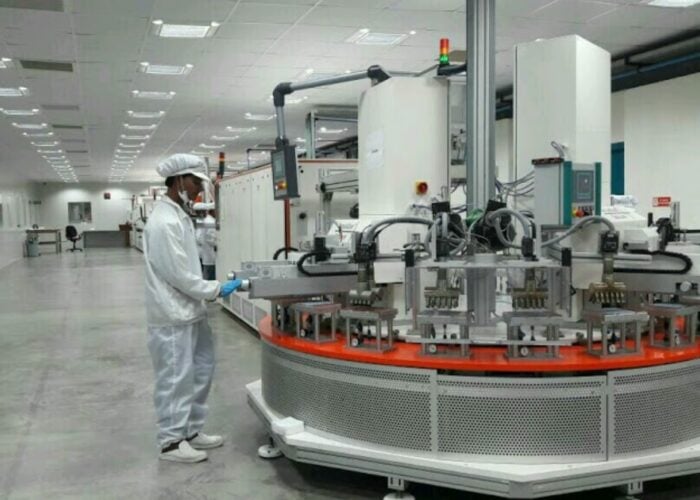
The 20% reduction in energy demand seen in India due to the COVID-19 lockdown could draw out favourable conditions for solar firms working in the commercial and industrial (C&I) sector, according to a prominent Indian developer.
Along with national energy demand plummeting, consumers are also more likely to default on payments at present, Adarsh Das, co-founder and CEO of Indian rooftop solar developer SunSource Energy, told PV Tech. This is expected to significantly hurt India’s distribution companies (Discoms), most of which are already in the red.
Try Premium for just $1
- Full premium access for the first month at only $1
- Converts to an annual rate after 30 days unless cancelled
- Cancel anytime during the trial period
Premium Benefits
- Expert industry analysis and interviews
- Digital access to PV Tech Power journal
- Exclusive event discounts
Or get the full Premium subscription right away
Or continue reading this article for free
“We predict an increase in the commercial and industrial grid tariff in the country to rescue the Discoms, which will open up a unique opportunity for the distributed solar companies who are focused on C&I segment,” said Das.
C&I solar has been the fastest mover in India’s rooftop PV sector over the last four years, amongst other measures by offering factories and industries ways of improving their bottom line through savings on power from the grid. By contrast, the residential rooftop sector has been slower to pick up.
Contract reneging
Looking at the wider Indian PV industry, Das expects the sector to face challenges in completing projects on time due to short-term supply chain disruptions. More than 80% of major PV equipment supplies come from China and a lockdown in that region has pushed back project commissioning dates by at least a quarter, he said.
Delays may be less of a concern given that, earlier this month, the Ministry of New and Renewable Energy (MNRE) ordered state authorities and clean energy agencies to treat the COVID-19 outbreak as a force majeure event, allowing developers to apply for time deferrals on project commissioning where there are genuine delays. This has been the “biggest relief” to developers, added Das.
More worryingly, however, Das said there is a possibility that suppliers or customers may renege on contracts and renegotiate the rates. The sentiment echoes that of the CEO of large-scale developer ACME Solar, who told PV Tech that if the delays reach a certain threshold then parties would have the right to terminate, resulting in project reassessments.
Manpower and capital shortages
The lockdown, which has led to millions of migrant workers fleeing cities to return to their home villages, has also seen various restrictions in movement brought in.
This is making it harder for developers to raise capital and mobilise manpower to manage assets and maintain the guaranteed generation levels, said Das. The difficulties come despite the fact that, as reported last week, the government has tried to help by classifying solar as ‘power generation’ and therefore as an ‘essential’ activity, which can continue in spite of the lockdown.
Financing issues have, Das said, fortunately been mitigated so far by timely action from the federal government and the Reserve Bank of India. These bodies have made significant announcements to infuse much-needed liquidity into the market and to address other development-related challenges.
“While the government has intervened strongly, the ball is essentially in the virus’s court, so to speak at this time,” Das concluded. “We stay optimistic and believe that this is a temporary blip and the industry will have to continue to tackle such challenges.”
PV Tech has set up a dedicated tracker to map out how the COVID-19 pandemic is disrupting solar supply chains worldwide. You can read the latest updates here.
If you have a COVID-19 statement to share or a story on how the pandemic is disrupting a solar business anywhere in the world, do get in touch at [email protected] or [email protected].






